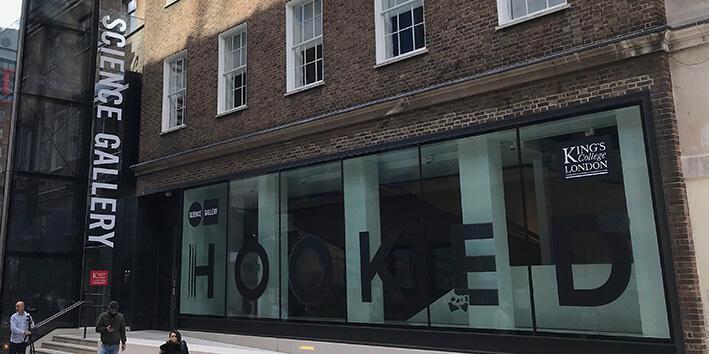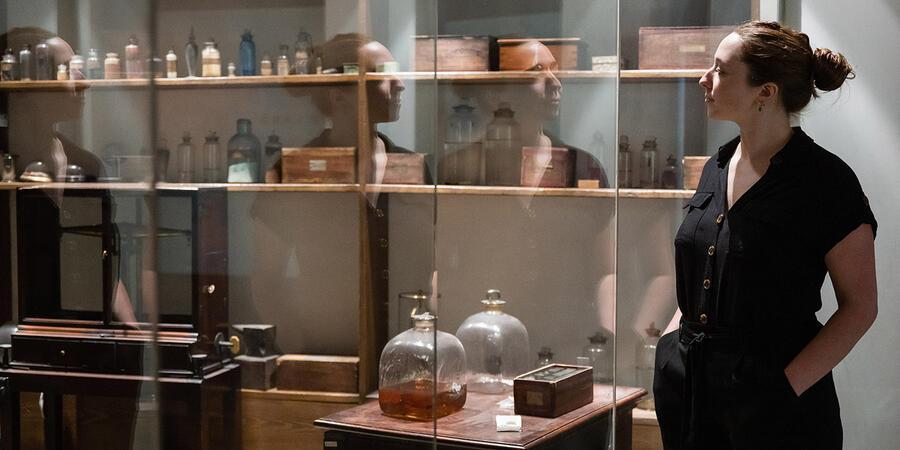When it comes to discovering new things to do, London is a great place to be, with its more than 170 museums. Most of us will have visited the big, internationally renowned museum, so what if you want to try something new?
Here are our recommendations for smaller, not-so-hidden gem museums and galleries in London, all about science, technology, engineering and mathematics.
1. The Horniman Museum and Gardens
This beautiful South London museum, surrounded by stunning gardens, showcases the eclectic collection of Frederick John Horniman. While it's probably best known for its taxidermy animals (don't miss the iconic overstuffed walrus), you can also find an interactive gallery of musical instruments from around the world and many anthropology artefacts.
Nearest transport: Forest Hill (Overground)
Entry fees: the main museum is free, but some galleries and exhibitions are charged. Find out more
2. Museum at St Bartholomew’s Hospital
This hospital museum tells the story of nine centuries of healthcare in the capital. You’ll find historical surgical instruments, unique pieces of art, and exciting archive items — like the 1546 agreement between Henry VIII and the City of London which refounded the hospital.
Nearest transport: Barbican, Farringdon and St Paul’s (Tube and rail)
Entry fees: free. Find out more

3. The Old Operating Theatre Museum
Predating anaesthetics and antiseptics, this is the oldest surviving surgical theatre in Europe. In the 1800s, people would flock to rooms like this to watch (sometimes in horror) operations being performed on patients.
Does it look familiar? Well-spotted: the lecture theatre at the Ri was modelled after this type of public operating theatre, so that the lecture desk would be visible to everyone in the room. As far as we know, no operations have taken place in our theatre…thus far.
Nearest transport: London Bridge (Tube and rail)
Entry fees: £4.50-£7.50. Find out more
4. Grant Museum of Zoology at UCL
Don’t miss the last university museum of zoology in London! From dodos to quaggas, you’ll find over 68,000 specimens here — sometimes taxidermized, but often dismembered and eerily suspended in formaldehyde. “Night at the museum” would’ve been an entirely different film if set here (Tim Burton, write this down).
Nearest transport: Warren Street (Tube)
Entry fees: free. Find out more

5. The Sewing Machine Museum
Travel back in time and watch textile technology evolve before your eyes. In this tiny museum situated in the upstairs of an active workshop, you can find thousands of sewing machines on display. The exhibit is the private collection of sewing machine salesman Ray Rushton, and it opens to the public only once a month, so make sure to plan your visit carefully. Don’t miss one of the most impressive items in the collection, a Pollack & Schmidt sewing machine from 1865 presented to Queen Victoria's firstborn daughter.
Nearest transport: Tooting Bec (Tube)
Entry fees: free, open on the first Saturday of the month, 2pm-5pm. Find out more
6. Kirklady Testing Museum
If you love machines and engineering, you don’t want to miss this one. This site hosts David Kirkaldy’s testing machine, which the Victorian engineer used to test materials for bridges all over the world (including nearby Blackfriars bridge), railways and ships. And it’s still operational today, showing how science and design solved some of the biggest engineering challenges of the time. This small museum opens on the first Friday of the month, and advance booking is required.
Nearest transport: Southwark (Tube)
Entry fees: £16.76. Find out more
7. The Science Gallery at King’s College London
The space brings together the renowned university’s academics, researchers and students with local communities and artists to explore new ideas across art, science and health.
Nearest transport: London Bridge (Tube and rail)
Entry fees: free. Find out more

8. Florence Nightingale Museum
Explore the life and work of the best-known figure in nursing history: Florence Nightingale, aka “the lady with the lamp”. Did you know that she was the first female member of the Royal Statistical Society? Nightingale was interested in many areas of STEM, and she often attended lectures here at the Royal Institution. She even exchanged letters with Michael Faraday, discussing religion (something both of them were passionate about) and the topics of his lectures.
Nearest transport: Westminster (Tube)
Entry fees: £5-£10. Find out more
9. Creekside Discovery Centre
Immerse yourself in wildlife in the heart of Deptford! This small conservation area is devoted to maintaining Deptford Creek, its flora and its fauna. An excellent destination for families with young children, the centre runs hands-on learning activities for young people, showing how we can all become conservation heroes.
Nearest transport: Deptford (train) and Greenwich (tube).
Entry fees: most workshops are free or pay-what-you-can. Find out more
10. The Faraday Museum here at the Royal Institution
How could we leave out our own Faraday Museum? A must-visit for science history fans, our free museum displays an amazing collection spanning over 200 years, from Humphry Davy’s miners’ safety lamp, to Kathleen Lonsdale’s structure of benzene. Don’t miss Michael Faraday’s laboratory, kept as it was back in the 1850s, where he worked on the discovery of electromagnetism, and the development of the world’s first electric motor.
Nearest transport: Green Park (Tube)
Entry fees: free. We are open Monday to Friday, 9am to 5pm. Check for planned closures
